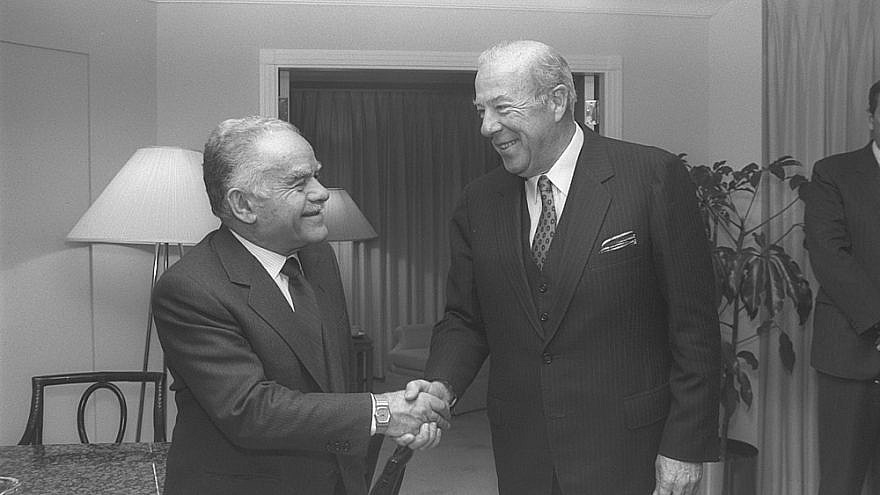When Natan Sharansky gained his freedom, U.S. Secretary of State George Shultz was the first person to phone him. That was because Shultz had campaigned directly with Soviet leaders for Sharansky’s release and with the strong support of President Ronald Reagan, Shultz had made freedom for Soviet Jews a key issue in his talks with Russian leaders.
Yet typical of the humble Shultz, he speaks of his debt to those he helped free, remarking that he has “a great sense of gratitude to the Soviet Jews because they showed us what courage is all about.” Years later, he explained himself further, telling Sharansky: “You played a crucial role in bringing down the Iron Curtain and giving freedom to the [Russian] people. I can assure you that your name will remain with us forever as a liberator of millions of Soviet Jews.”
This is true, of course, of Shultz himself.
A Marine artillery officer in World War II, he is one of only two men to have served in four different U.S. cabinet positions.
But it is as a devoted advocate for freedom that he made an enduring mark. Striving for that cause, Shultz consistently supported Israel, recognizing its importance as an American ally. That commitment was shown during his six-and-a-half years as Ronald Reagan’s Secretary of State. In 1982, Shultz’s shuttle diplomacy helped bring Israel’s forces safely away from Beirut during the Lebanese Civil War, and, in 1988, he labored to bring an end to the first intifada.
He also helped Israeli leaders deal with the problems of hyper-inflation during the 1980s, noting that Israel wouldn’t be safe unless it strengthened its economy and got its government budget in order. To assist in that battle, he put together an American-Israeli Joint Economic Development Group aimed at stabilizing the Israeli economy, and helped shepherd through emergency economic assistance to Israel. Shultz also was instrumental in putting together America’s first free-trade agreement—with Israel of all countries—in 1986.
Though rarely mentioned today, Shultz’s efforts were vital in stabilizing the Israeli economy and helped lay the groundwork for its astonishing economic success in the decades that followed.
Most recently, Shultz, 97, has spoken out about the inherent difficulty of assuring Iranian compliance to any nuclear agreement and of the risks posed by Iran as a determined enemy of freedom and the West.
Throughout his distinguished career in public service, Shultz has never wavered in his determination to support freedom and in his friendship towards Israel.


























